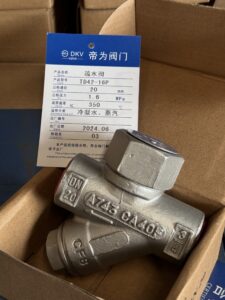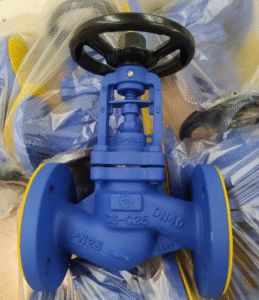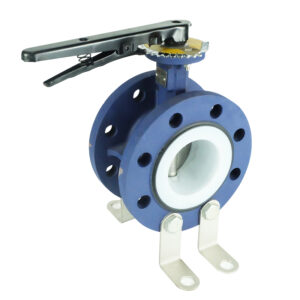
What Is a Check Valve and How Does It Work?
What Is a Check Valve and How Does It Work? Introduction — Why Check Valves Matter in Industrial Systems In every pipeline system, fluid needs

In many industrial systems, automated flow control is critical for safety, accuracy, and efficiency.
A common issue faced by engineers and procurement managers is choosing the correct control valve to avoid failures. such as leakage, slow response, or energy waste. One of the most widely used options is the solenoid valve.
This article explains what a solenoid valve is, how it works, its applications, and key specifications that matter for B2B engineering projects.
A solenoid valve is an electromechanically operated valve that uses an electric current (through a solenoid coil) to control the opening or closing of a valve seat.
It functions as an on/off control device for liquids or gases, enabling automated, remote, or timed operation.
Buyer tip: Always match seal material with process media (e.g., FKM for fuels, EPDM for water).


The principle is straightforward: when the solenoid coil is energized, it creates a magnetic field that pulls the plunger upward, opening the valve and allowing fluid to pass.
When the coil is de-energized, a spring pushes the plunger back to seal the orifice, stopping flow. This rapid switching mechanism allows precise control of flow in automated systems.
Engineer’s tip: For high-pressure systems (>10 bar), pilot-operated designs reduce coil power requirements.
Solenoid valves are used across multiple industries where fast, reliable, and automated shut-off is needed:
Case example: A water treatment plant replaced manual globe valves with automated solenoid valves, reducing operator intervention by 40% and improving dosing accuracy.
Procurement reminder: Always check IP protection (e.g., IP65/IP67) for coils in outdoor or wash-down environments.
Buyer tip: For modulating control, consider globe or pneumatic valves; solenoids are primarily on/off devices.
With 40+ years of valve manufacturing experience and supply to 60+ global markets, DKV Valve ensures solenoid valves meet ISO 9001 quality standards and hold CE certification.
Our products are backed by a 12–18 month warranty, covering both manufacturing and material quality.
Looking for reliable solenoid valves for your project? Our engineering team provides technical datasheets, compliance documents, and sample testing to ensure the right fit for your application. Contact us today to request a quote or receive technical specifications.

What Is a Check Valve and How Does It Work? Introduction — Why Check Valves Matter in Industrial Systems In every pipeline system, fluid needs

What Is a Pneumatic Valve ? In modern industries, the performance of a valve often determines the efficiency, reliability, and safety of a process system.Pneumatic

What Is a Steam Trap & How Does It Work? Introduction — The Hidden Hero in Steam Systems In every industrial steam system — whether

Why Use a Globe Valve Instead of a Gate Valve? A Practical Guide for Engineers & Procurement Managers Introduction — Making the Right Valve Choice

What Is the Main Advantage of a Butterfly Valve? Introduction — why this question matters When you plan an industrial piping system, valve selection affects

Electric Valves: Comprehensive Guide for Industrial Applications In modern industrial automation, electric valves play a critical role in regulating fluid flow with precision and reliability.
Poly Center T41601, Le Cong Town, Shunde District, Foshan City, Guangdong Province, China
We will contact you within 1 working day, please pay attention to the email with the suffix “@dkvchina.com”.
We will contact you within 1 working day, please pay attention to the email with the suffix “dkvchina.com”.